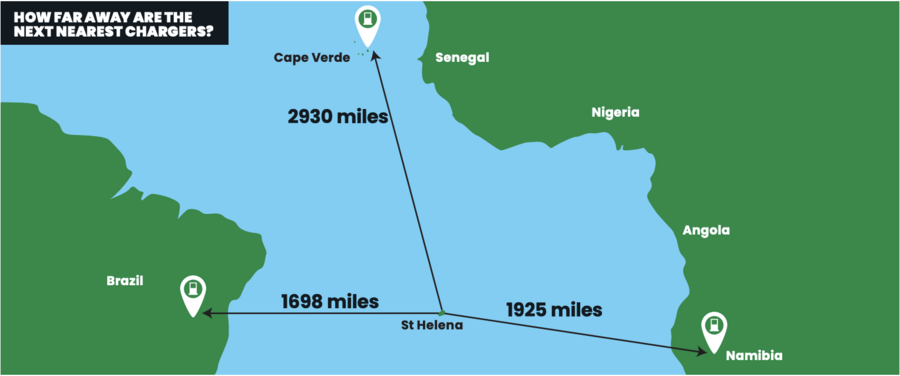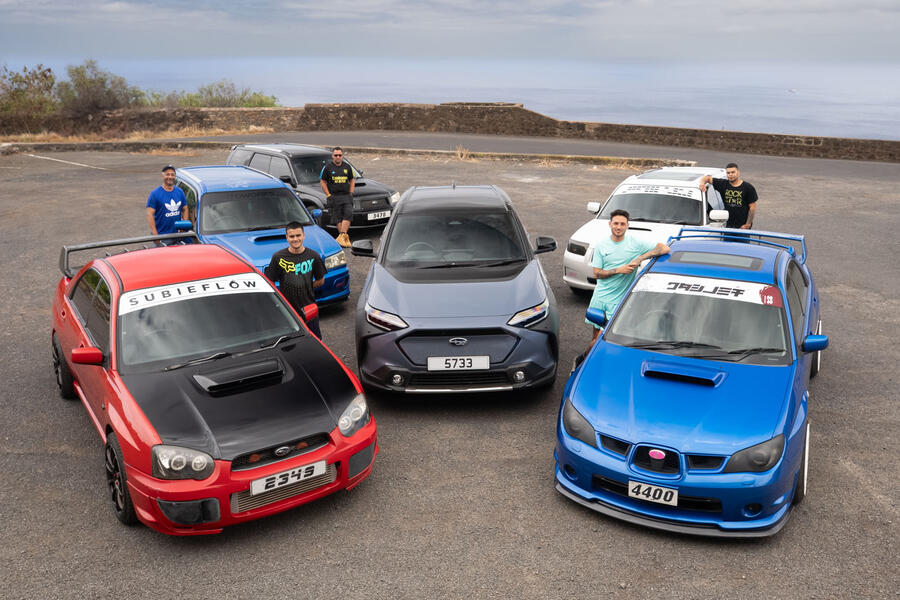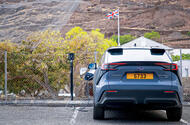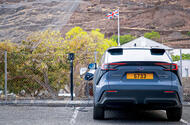St Helena is home to just over 5000 people
Mid-Atlantic island of St Helena aims to become first all-electric territory
A British Overseas Territory is aiming to be the first territory in the world to switch entirely to EVs.
St Helena, an extremely remote volcanic island in the middle of the Atlantic Ocean, is home to just over 5000 people, many of whom run decaying Ford Fiestas, Ford Transits and Land Rover Defenders. But the local government wants to wean itself from these older, more polluting cars in favour of EVs run on green energy.
Supporters of the scheme say St Helena is arguably the perfect place for EVs, as it’s never too hot or too cold to affect batteries and its location means green energy is easy to obtain.
Currently 25% of the island’s energy comes from a single modest wind and solar farm, with the rest generated by a diesel-fuelled power station, fuel for which is imported.
“We spend about £5 million a year bringing diesel in,” said Mark Brooks, minister of the treasury and economic development. “But it’s not just the cost to buy the diesel, it’s also the cost to transport the diesel to the island and then transfer it into our storage. So we’re looking to transition to more renewable energy production. We want to get to 80% from renewable energy by 2028.”
He continued: “It is entirely possible that we can run an entire island from renewable energy. We could only have diesel generation in terms of resilience in case something goes wrong with the renewables.”
To prove that EVs could be used en masse on St Helena, Brooks and his team imported a Subaru Solterra and borrowed a charger from Norwegian company Easee to be installed in the island’s capital, Jamestown. This is currently the remotest public charger in the world.

The impact of the trial was immediate: three islanders offered to buy the Solterra and the charger will stay on the island and is set to be one of a network of chargers used for a new fleet of EVs coming to St Helena in 2025.
The ball is now in the court of the local government.
British businessman Derek Pedley, who is one of five people to already be running an EV on the island, told Autocar that the powertrain’s simplicity will lead to hundreds of EVs being imported within the next five years.
His confidence has led him to begin importing a small fleet of electric Minis. He will also drape them with the St Helena flag.
“The experience that. I have had running an electric car on the island has been nothing but positive. It’s been very reliable,” said Pedley. “Repairs have been basically [only related to the] brakes and tyres, which are standard on any vehicle. I think the transition is about to begin.”
A big pull for St Helena is its lack of import tax, meaning EVs will be cheaper to buy there than in the UK proper.
However, wages are low (£9000 per annum on average), meaning the government is having to look for other incentives when it comes to generating mass appeal for EVs.
Subarus way off the beaten track

The Solterra turned out to be the perfect EV to test on St Helena. Why? Because, surprisingly, the island has a bustling Subaru culture.
Despite being 1200 miles from the nearest land, a few brave souls have imported some Japanese-market classics, including a dozen Subaru Impreza WRXs – perfect for the handful of switchback mountain roads, all of which would make sublime rally stages.
The local Subaru owners gathered to see the Solterra. Alex Hudson, who is in his third Impreza, a UK-market 2006 WRX, said: “With all the steep bends on the roads here, all-wheel drive is perfect, so Subarus have kind of got under our skin on St Helena.
“They used to be cheap, but now they have gone up in value, which is nice.
“I like the look of the electric one. It’s good to see Subaru coming up with new tech. But I’m not selling my Impreza!”
Jeremy Hart


